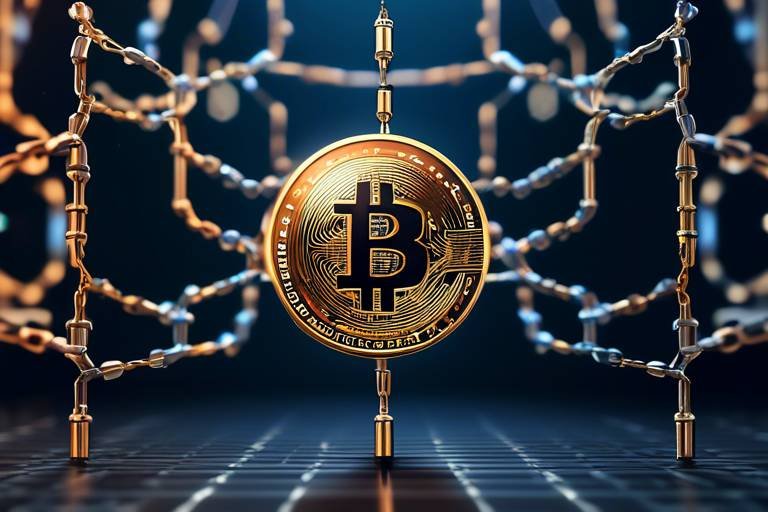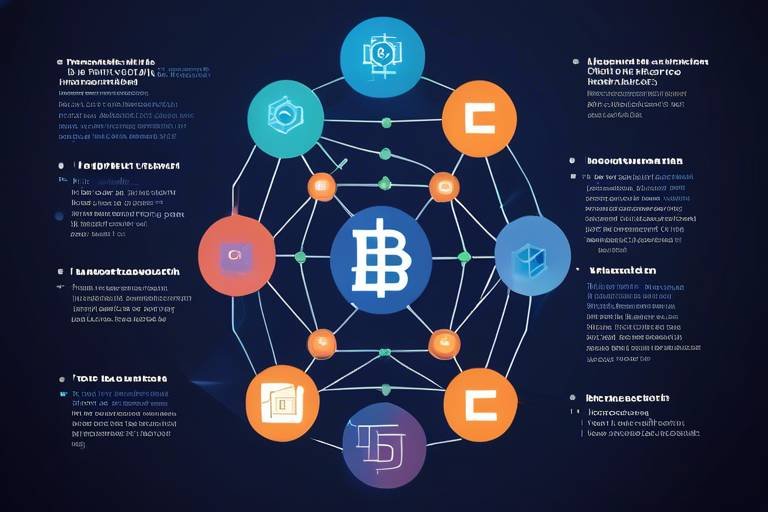The Role of Blockchain in Enhancing Privacy for Consumers
In today's digital landscape, where personal information is often treated as a commodity, the concept of privacy has become a crucial topic of discussion. With data breaches, surveillance, and the constant threat of identity theft looming, consumers are increasingly searching for ways to reclaim their privacy. Enter blockchain technology—a revolutionary tool that not only enhances privacy but also empowers individuals to take control of their personal data. This article explores the transformative potential of blockchain in safeguarding consumer privacy, the benefits it offers, and its implications across various industries.
So, what exactly is blockchain? At its core, blockchain is a decentralized digital ledger that records transactions across multiple computers in a way that ensures the data is secure, transparent, and immutable. Unlike traditional databases that are controlled by a single entity, blockchain operates on a peer-to-peer network, meaning that no single party has complete control over the information. This decentralization is one of the key factors that contribute to enhanced privacy for consumers.
Moreover, blockchain employs advanced cryptographic techniques to secure data. Each transaction is encrypted and linked to the previous one, creating a chain of blocks that is nearly impossible to alter without detection. This level of security not only protects consumer data from unauthorized access but also provides individuals with greater control over who can see their information. Imagine a world where you can share your personal details selectively, only with those you trust. That's the power of blockchain!
Despite the advancements in technology, consumers face a plethora of privacy challenges in the digital age. Data breaches have become alarmingly common, with companies often failing to protect sensitive information. In fact, according to recent statistics, over 4 billion records were exposed in data breaches in just one year. This staggering number highlights the urgent need for innovative solutions that can provide robust privacy protections, and blockchain is emerging as a promising answer.
Data breaches can have devastating effects on consumers. They can lead to identity theft, financial loss, and a breach of trust between consumers and businesses. To illustrate the severity of this issue, consider the case of a major retail chain that suffered a data breach exposing millions of credit card numbers. The aftermath was catastrophic—not only did the company face hefty fines, but the trust of its customers was irreparably damaged. This scenario underscores the importance of addressing vulnerabilities in data security.
Understanding the different types of data breaches can help consumers recognize potential risks. Here are a few common types:
- Hacking: Unauthorized access to systems to steal data.
- Insider Threats: Employees misusing access to sensitive information.
- Physical Theft: Loss of devices containing sensitive data.
Each of these breaches poses unique implications for personal privacy and security, making it imperative for consumers to stay informed and vigilant.
The aftermath of a data breach can be severe and long-lasting. Individuals may face financial repercussions, such as fraudulent charges or costs associated with identity theft protection. Businesses, on the other hand, can suffer from loss of customer trust, legal liabilities, and significant financial penalties. The importance of robust privacy measures cannot be overstated, as they serve as a first line of defense against such threats.
Blockchain technology offers several unique advantages for enhancing consumer privacy. Its decentralized nature means that personal data is not stored in a single location, reducing the risk of mass data breaches. Additionally, the use of encryption ensures that only authorized parties can access sensitive information. This empowers individuals to manage their personal information securely, allowing them to decide what data to share, with whom, and when.
Various industries are leveraging blockchain technology to improve privacy. In finance, for example, blockchain enhances transaction security and reduces fraud, providing consumers with peace of mind. In healthcare, blockchain can secure patient records and streamline data sharing while protecting individual privacy rights. The versatility of blockchain technology makes it an effective tool for addressing privacy concerns across multiple sectors.
In the financial sector, blockchain is a game-changer. It enables secure transactions that are transparent and traceable, thus reducing the likelihood of fraud. Cryptocurrencies and decentralized finance (DeFi) platforms are prime examples of how blockchain is enhancing consumer privacy. These systems allow individuals to conduct transactions without revealing their identities, providing a layer of anonymity that traditional banking cannot offer.
When it comes to healthcare, privacy is paramount. Patients deserve to know that their sensitive health information is protected. Blockchain can secure patient records, ensuring that only authorized healthcare providers have access to them. This not only enhances privacy but also facilitates better data sharing among professionals, ultimately leading to improved patient care.
As blockchain technology continues to evolve, its role in consumer privacy is expected to expand even further. We can anticipate the development of more privacy-focused blockchain solutions that address existing challenges while also considering regulatory compliance. However, challenges such as scalability and interoperability must be tackled to fully realize the potential of blockchain in enhancing consumer privacy. The future looks promising, and it’s an exciting time to be a part of this technological revolution.
- What is blockchain? Blockchain is a decentralized digital ledger that records transactions across multiple computers securely.
- How does blockchain enhance privacy? It decentralizes data storage and employs encryption, allowing individuals to control their personal information.
- What industries are using blockchain for privacy? Industries like finance and healthcare are leveraging blockchain to improve data security and privacy.
- What are the risks associated with data breaches? Risks include identity theft, financial loss, and loss of customer trust for businesses.

[Understanding Blockchain Technology]
Blockchain technology is often described as a decentralized digital ledger that records transactions across numerous computers in a way that ensures the security and integrity of the data. Imagine a book where every page is linked to the previous one, making it nearly impossible to alter any single page without affecting the entire book. This analogy encapsulates the essence of blockchain. Each block in the chain contains a list of transactions and is connected to the previous block through cryptographic hashes, creating a secure and transparent record of all activities.
At its core, blockchain operates on three fundamental principles: decentralization, transparency, and security. Decentralization means that no single entity has control over the entire network. Instead, the power is distributed among all participants, which greatly reduces the risk of fraud and manipulation. Transparency allows all participants to view the entire chain of transactions, fostering trust among users. Lastly, security is achieved through cryptographic techniques that protect data from unauthorized access and ensure that once a transaction is recorded, it cannot be altered or deleted.
Moreover, blockchain technology can enhance consumer privacy in several ways. For instance, it allows individuals to have control over their own data, meaning they can decide who gets access to their information and under what circumstances. This is particularly important in an era where data breaches and unauthorized surveillance have become commonplace. By utilizing blockchain, consumers can engage in transactions without having to share their personal information directly, effectively acting as their own gatekeepers.
To better understand the impact of blockchain on privacy, consider the following key features:
- Data Ownership: Users maintain ownership of their data, which can be shared selectively.
- Immutable Records: Once data is recorded on the blockchain, it cannot be changed, providing a reliable audit trail.
- Encryption: Transactions are secured through advanced encryption methods, making unauthorized access extremely difficult.
In summary, blockchain technology represents a significant advancement in how we think about data privacy and security. Its decentralized nature, combined with transparency and robust security measures, empowers consumers to take charge of their personal information, paving the way for a more secure digital future. As industries begin to adopt this technology, we can expect to see a shift in how privacy is managed, ultimately benefiting consumers in ways we are just beginning to understand.
- What is blockchain technology? Blockchain is a decentralized digital ledger that records transactions across multiple computers, ensuring security and integrity.
- How does blockchain enhance privacy? It allows users to control their data, share it selectively, and ensures that once recorded, data cannot be altered.
- Why is decentralization important? Decentralization reduces the risk of fraud and manipulation since no single entity controls the entire network.

[Consumer Privacy Challenges]
In today's digital landscape, consumers are increasingly aware of the critical importance of their privacy. With every click, swipe, and tap, personal information is being collected, analyzed, and often misused. The challenges surrounding consumer privacy are numerous and complex, making it essential for individuals to understand the risks they face. One of the primary challenges is the prevalence of data breaches, which can expose sensitive information to malicious actors. These breaches can occur in various settings, from large corporations to small businesses, and the fallout can be devastating.
Furthermore, the rise of surveillance technologies has added another layer of concern. Consumers are often unaware of the extent to which their online behavior is monitored, leading to a feeling of being constantly watched. This invasive scrutiny can result in a loss of trust in brands and institutions, as people become hesitant to share their information. The reality is that many companies prioritize profit over privacy, often leading to practices that exploit consumer data rather than protect it.
To illustrate the severity of these issues, consider the following statistics:
| Year | Number of Data Breaches | Records Exposed |
|---|---|---|
| 2020 | 1,108 | 36 billion |
| 2021 | 1,862 | 22 billion |
| 2022 | 1,862 | 45 billion |
As we can see, the number of data breaches is alarmingly high, and the volume of records exposed is even more concerning. This situation raises questions about the effectiveness of current security measures and the need for innovative solutions like blockchain technology, which can offer a more secure way to handle personal information.
Another significant challenge is the lack of transparency in how companies handle consumer data. Many organizations operate with vague privacy policies that are difficult for the average person to understand. This opacity can lead to consumers unknowingly consenting to data collection practices that compromise their privacy. As a result, there is a growing demand for clearer and more accessible privacy policies, as well as for technologies that empower consumers to take control of their data.
In summary, the consumer privacy landscape is fraught with challenges, from data breaches to surveillance and lack of transparency. As we navigate this complex environment, it becomes increasingly clear that innovative solutions are needed to safeguard personal information. Blockchain technology stands out as a promising option, offering a decentralized and secure way for consumers to manage their data. But before diving into how blockchain can enhance privacy, it’s essential to fully grasp the implications of these challenges.
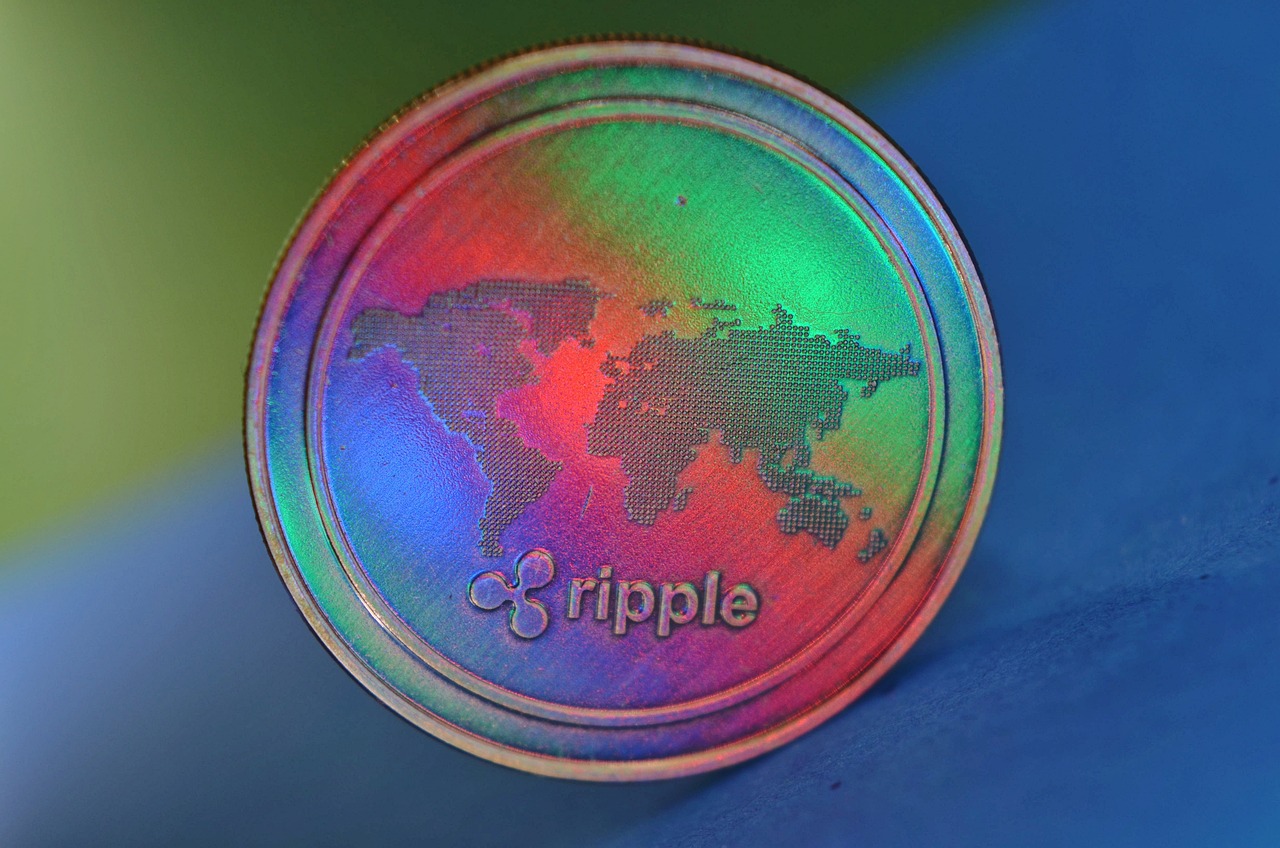
[Data Breaches and Their Impact]
Data breaches are becoming alarmingly common, and their impact on consumers can be both immediate and long-lasting. In a world where our personal information is increasingly digitized, the vulnerabilities associated with data breaches have never been more significant. Imagine waking up to find that your financial information has been compromised, or that your medical records are now in the hands of cybercriminals. It's not just a nightmare scenario; it’s a reality for millions of people every year.
Statistics reveal the severity of the issue. According to recent reports, over 4.1 billion records were exposed in data breaches in just the first half of 2019 alone. That's a staggering number that illustrates how widespread this problem has become. The consequences of these breaches can be catastrophic, leading to identity theft, financial loss, and even emotional distress. In some cases, victims may spend years trying to recover their identities and restore their credit ratings.
But what exactly happens after a data breach? The fallout can be categorized into several key areas:
- Financial Loss: Victims often face direct financial losses, as their bank accounts may be drained or credit cards maxed out by unauthorized transactions.
- Identity Theft: This is one of the most concerning outcomes, where criminals use stolen information to impersonate the victim, leading to a myriad of issues.
- Emotional Distress: The psychological impact of knowing that your personal information is out there can lead to anxiety, stress, and a feeling of vulnerability.
- Legal Consequences: Companies that suffer data breaches may face lawsuits and regulatory fines, which can, in turn, affect consumers if the company decides to raise prices to cover these costs.
Furthermore, data breaches don't just affect the individuals whose information is stolen; they can have broader implications for businesses and society as a whole. Companies that experience breaches often see a decline in consumer trust, which can lead to loss of revenue and a damaged reputation. A single incident can result in millions of dollars in damages, not to mention the potential for future business loss as customers turn to competitors who can offer better security.
In conclusion, the impact of data breaches on consumers is profound and multifaceted. It’s a stark reminder of the importance of robust privacy measures and the need for innovative solutions like blockchain technology that can help protect personal information in this digital age. As we continue to navigate this landscape, understanding the risks and staying informed is crucial for safeguarding our data.
- What is a data breach? A data breach occurs when unauthorized individuals gain access to sensitive data, often resulting in the exposure of personal information.
- How can I protect myself from data breaches? Regularly updating passwords, using two-factor authentication, and monitoring your financial accounts can help mitigate risks.
- What should I do if my data has been compromised? If you suspect a data breach, immediately change your passwords, contact your bank, and consider placing a fraud alert on your credit report.
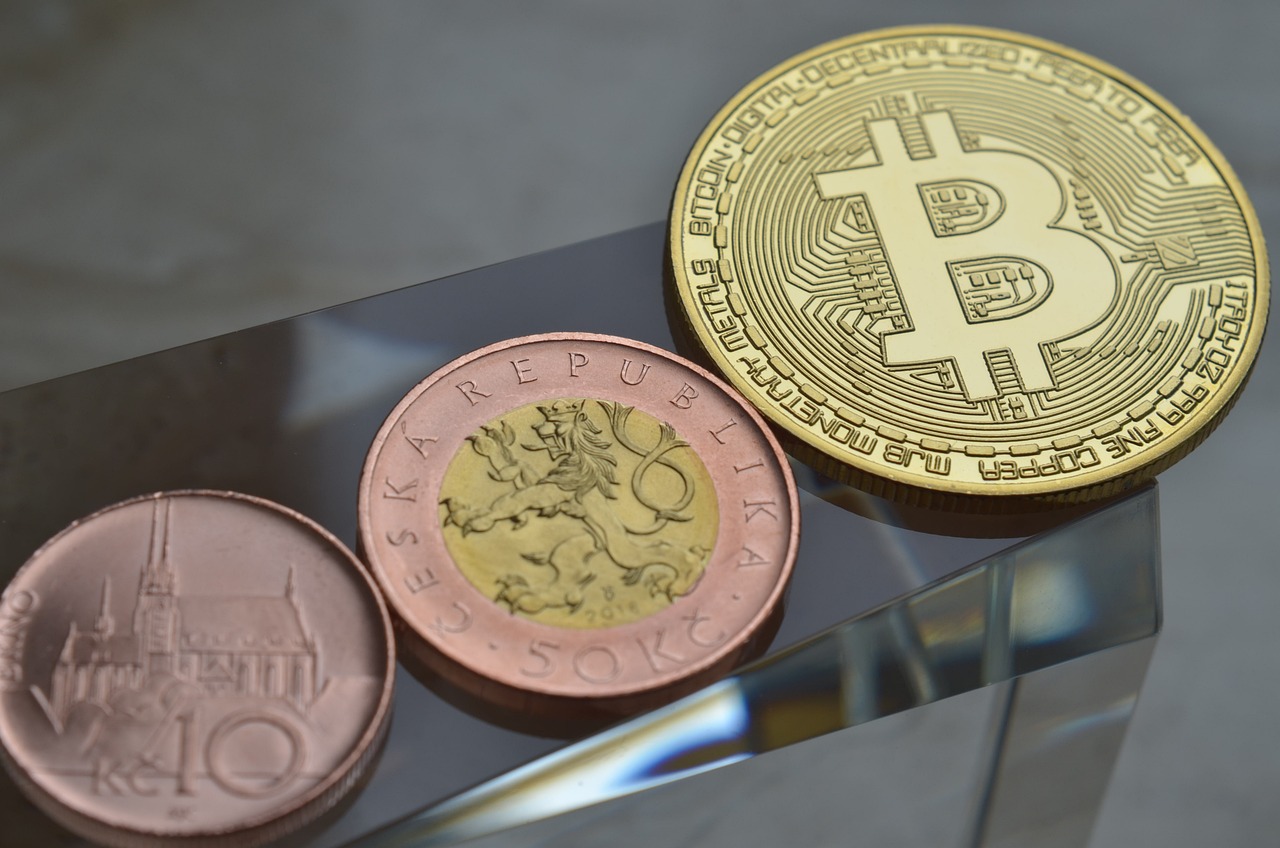
[Types of Data Breaches]
When we talk about data breaches, it’s crucial to understand that they come in various forms, each with its own implications for privacy and security. A data breach occurs when unauthorized individuals gain access to sensitive information, and the consequences can be severe. Understanding the different types of breaches can help consumers recognize potential risks and take proactive measures to protect their data.
One common type of breach is the hacking incident, where cybercriminals exploit vulnerabilities in systems to gain access to data. This can happen through various methods, such as phishing attacks, malware, or exploiting software vulnerabilities. For instance, in 2020, a well-known social media platform experienced a massive breach that exposed the personal information of millions of users due to inadequate security measures.
Another prevalent type is insider threats, which occur when employees or contractors misuse their access to sensitive information. This can be intentional or accidental. For example, an employee might inadvertently share confidential data with unauthorized parties, leading to a breach. According to recent studies, insider threats account for a significant percentage of data breaches, which highlights the importance of employee training and access control.
Additionally, we have physical breaches, where sensitive information is accessed through physical means. This could involve stealing devices like laptops or hard drives that contain unencrypted data. It serves as a reminder that protecting physical assets is just as crucial as securing digital information.
Lastly, accidental breaches can occur when data is unintentionally exposed. This might happen through misconfigured settings on cloud storage services or by mistakenly sending sensitive information to the wrong recipient. Such incidents often highlight the need for better data management practices and awareness of privacy settings.
In summary, recognizing the types of data breaches is the first step in safeguarding personal information. By being aware of the various methods through which breaches can occur, consumers can take proactive measures to enhance their security. Whether it's implementing stronger passwords, utilizing encryption, or being cautious about sharing personal information, every step counts in the battle against data breaches.
- What is a data breach? A data breach is an incident where unauthorized individuals gain access to sensitive information, which can lead to identity theft or other forms of fraud.
- What are the common types of data breaches? Common types include hacking incidents, insider threats, physical breaches, and accidental breaches.
- How can I protect myself from data breaches? You can protect yourself by using strong passwords, enabling two-factor authentication, regularly monitoring your accounts, and being cautious about sharing personal information.

[Consequences of Data Breaches]
Data breaches can feel like a punch to the gut, can't they? Imagine waking up one day to find out that your personal information has been compromised. The consequences of such breaches ripple through every facet of a consumer's life, creating a chaotic aftermath that often leaves individuals and businesses scrambling to regain their footing. The immediate fallout can be alarming, but the long-term effects are what truly make data breaches a significant concern.
One of the most pressing consequences is identity theft. When sensitive information, such as Social Security numbers or credit card details, falls into the wrong hands, it can lead to unauthorized purchases, loans, and even criminal activities committed in someone's name. According to recent statistics, around 1 in 15 individuals become victims of identity theft each year, showcasing just how prevalent this issue has become.
Another severe impact is the potential for financial loss. Not only do victims face the immediate costs associated with rectifying fraudulent transactions, but they also grapple with the long-term financial implications of repairing their credit scores. The Federal Trade Commission (FTC) estimates that identity theft can cost individuals an average of $1,343 in out-of-pocket expenses, not to mention the countless hours spent resolving these issues.
Moreover, businesses aren't spared from the fallout either. A single data breach can lead to devastating consequences for a company’s reputation and bottom line. Customers may lose trust and loyalty, leading to decreased sales and a tarnished brand image. In fact, a study by IBM found that the average cost of a data breach for a company is around $4.24 million, a staggering sum that can cripple even well-established businesses.
To further illustrate the profound effects of data breaches, consider the following table that outlines some of the key consequences:
| Consequence | Description |
|---|---|
| Identity Theft | Unauthorized use of personal information leading to financial fraud. |
| Financial Loss | Costs incurred from fraudulent transactions and credit repair. |
| Reputation Damage | Loss of customer trust and loyalty, affecting sales and brand image. |
| Legal Consequences | Potential lawsuits and regulatory fines for companies failing to protect data. |
Lastly, the legal implications cannot be overlooked. Companies that experience data breaches may face lawsuits from affected consumers, as well as hefty fines from regulatory bodies for failing to adequately protect sensitive information. This creates a perfect storm of repercussions that can take years to fully resolve.
In conclusion, the consequences of data breaches extend far beyond the immediate loss of data. They encompass a wide range of impacts that can affect both individuals and businesses for years to come. As consumers, it’s crucial to remain vigilant and proactive in safeguarding personal information, while advocating for stronger privacy measures in the digital landscape.
- What should I do if my data has been breached? - Immediately change your passwords, monitor your accounts for unusual activity, and consider placing a fraud alert on your credit report.
- How can I protect myself from data breaches? - Use strong, unique passwords, enable two-factor authentication, and regularly monitor your financial statements.
- Are all data breaches the same? - No, they can vary in severity and type, affecting different types of information and resulting in various consequences.
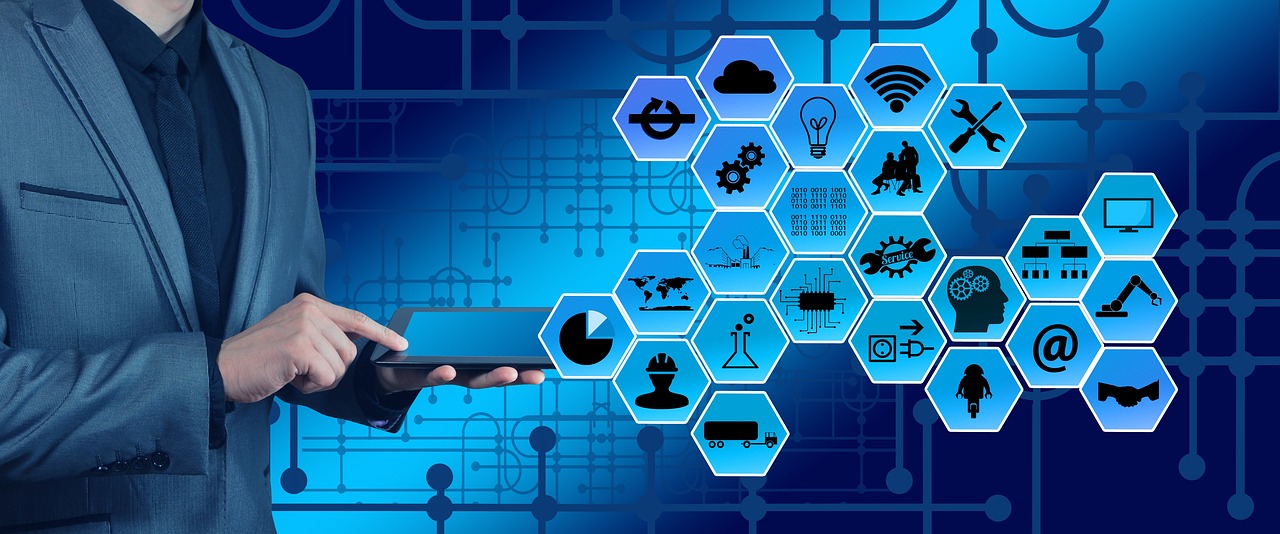
[The Benefits of Blockchain for Privacy]
When we talk about privacy, we often find ourselves in a maze of complexities. The digital age has brought us incredible conveniences but at the cost of our personal data. Enter blockchain technology, a game-changer that offers a beacon of hope for consumers yearning for privacy. So, what makes blockchain such a powerful tool for enhancing privacy? Let’s dive into its benefits!
First and foremost, one of the standout features of blockchain is its decentralization. Unlike traditional databases that are controlled by a single entity, blockchain operates on a network of computers (or nodes). This means that your data isn't stored in one vulnerable location, making it significantly harder for hackers to access it. Imagine a treasure chest that’s locked away in a vault, but instead of one vault, there are thousands scattered across the globe. Even if someone tries to break into one, the rest remain safe and sound!
Additionally, blockchain employs encryption to protect data. Each transaction is encrypted and linked to the previous one, creating an unbreakable chain of information. This is akin to sending a secret message that only the intended recipient can decode. Even if someone intercepts the message, they won’t understand it without the key. This level of security empowers consumers, allowing them to control who accesses their personal information and under what circumstances.
Moreover, blockchain promotes transparency without compromising privacy. This might sound contradictory, but bear with me. In a blockchain system, every transaction is recorded on a public ledger that anyone can view. However, the identities behind these transactions are anonymized. Think of it as a bustling marketplace where you can see the transactions happening, but you don’t know who is buying or selling. This transparency builds trust while safeguarding individual identities.
Another significant advantage is the concept of self-sovereignty. With blockchain, individuals can own and manage their data without relying on intermediaries. This is revolutionary! Instead of having your data scattered across various platforms, you can store it securely on the blockchain and share it selectively. It’s like having a personal vault where you decide who gets the key. This not only enhances privacy but also gives consumers the power to monetize their data if they choose to do so.
Lastly, let’s not overlook the potential for smart contracts. These are self-executing contracts with the terms of the agreement directly written into code. They can automate transactions while ensuring that privacy is maintained. For instance, in a healthcare scenario, a smart contract can facilitate the sharing of sensitive patient data with authorized parties only, without exposing the entire record. This means that while information flows smoothly, privacy remains intact.
In summary, the benefits of blockchain for privacy are multifaceted and transformative. From decentralization and encryption to transparency and self-sovereignty, this technology is reshaping the way we think about and manage our personal data. As we venture further into this digital landscape, embracing blockchain could very well be the key to reclaiming our privacy.
- What is blockchain technology?
Blockchain is a decentralized digital ledger that records transactions across multiple computers, ensuring that the data is secure and immutable. - How does blockchain enhance consumer privacy?
By decentralizing data storage, encrypting transactions, and allowing users to control their own data, blockchain significantly enhances consumer privacy. - Can blockchain prevent data breaches?
While it can reduce the risk of data breaches due to its decentralized nature, no system is completely immune. However, it does provide a more secure environment for data storage. - What are smart contracts?
Smart contracts are self-executing contracts with the terms directly written into code, allowing for automated transactions while maintaining privacy.

[Real-World Applications of Blockchain]
Blockchain technology is not just a buzzword; it’s a revolutionary force that’s reshaping various industries by enhancing privacy and security. Imagine a world where your personal data is no longer vulnerable to hacks, where you have full control over who accesses your information. This is the promise of blockchain. It’s like having a vault for your data, where only you hold the key. Let’s dive into how different sectors are harnessing this incredible technology to create safer environments for consumers.
In the finance sector, blockchain is making waves by providing a secure framework for transactions. Traditional banking systems often involve multiple intermediaries, which can expose your data to risks. With blockchain, transactions are recorded on a decentralized ledger, making it incredibly difficult for unauthorized parties to access sensitive information. Cryptocurrencies, such as Bitcoin and Ethereum, utilize blockchain to ensure that transactions are not only secure but also private. In fact, decentralized finance (DeFi) platforms are emerging as powerful tools for individuals seeking to manage their finances without relying on traditional banks. This means more privacy, less fraud, and greater control over personal assets.
Healthcare is another arena where blockchain shines. Patient records are among the most sensitive types of data, and breaches can lead to severe consequences. By implementing blockchain, healthcare providers can create a secure and immutable record of patient information. This not only protects individual privacy but also facilitates safe data sharing among authorized healthcare professionals. Patients can have peace of mind knowing that their information is safeguarded against unauthorized access. Imagine being able to share your medical history with a new doctor without the fear of it being leaked or misused. That’s the power of blockchain in healthcare.
Supply chain management is yet another area where blockchain is proving its worth. With the rise of global trade, tracking the origin and journey of products has become increasingly complex. Blockchain allows for transparent tracking of goods from the manufacturer to the consumer. Each transaction is recorded on the blockchain, providing a clear and tamper-proof history of a product. This not only enhances privacy but also helps in verifying the authenticity of products, reducing the risk of fraud. For instance, consumers can scan a QR code on their organic produce and trace it back to the farm it came from, ensuring that they are getting what they paid for.
To illustrate the versatility of blockchain applications, here’s a quick overview of how different industries are leveraging this technology:
| Industry | Application | Benefits |
|---|---|---|
| Finance | Cryptocurrencies and DeFi | Enhanced security, reduced fraud, greater control |
| Healthcare | Secure patient records | Improved privacy, safe data sharing |
| Supply Chain | Product tracking | Transparency, authenticity verification |
As we can see, the real-world applications of blockchain are vast and varied. From finance to healthcare to supply chain management, this technology is paving the way for a more secure future. It empowers consumers by putting them in control of their personal data, ensuring that their privacy is respected and protected. The implications are profound, and as more industries adopt blockchain, we can expect to see even more innovative solutions that prioritize consumer privacy.
- What is blockchain technology?
Blockchain is a decentralized digital ledger that records transactions across multiple computers, ensuring that the data is secure and immutable. - How does blockchain enhance consumer privacy?
By decentralizing data storage and using encryption, blockchain allows consumers to control their personal information, reducing the risk of data breaches. - Which industries are using blockchain?
Industries such as finance, healthcare, and supply chain management are leveraging blockchain for its security and privacy benefits. - Can blockchain prevent data breaches?
While it can't eliminate all risks, blockchain significantly enhances security measures, making it much harder for unauthorized access to occur.

[Blockchain in Finance]
Blockchain technology is revolutionizing the financial sector by introducing a new level of security and privacy that was previously unimaginable. Imagine a world where your bank transactions are not only secure but also completely transparent and unhackable. This is the promise of blockchain. By utilizing a decentralized ledger, blockchain allows for secure peer-to-peer transactions without the need for intermediaries, such as banks. This not only reduces costs but also significantly enhances privacy.
One of the most compelling aspects of blockchain in finance is its ability to facilitate secure transactions. Traditional banking systems often require extensive personal information, which can expose consumers to risks of data breaches. In contrast, blockchain transactions can be conducted with pseudonymous identities, meaning that while the transaction is recorded, the personal details of the users involved remain confidential. This level of privacy is crucial in a world where data breaches are becoming more common.
Furthermore, the rise of cryptocurrencies, such as Bitcoin and Ethereum, showcases how blockchain can enable financial transactions that prioritize user privacy. With cryptocurrencies, users have the ability to control their funds directly, without relying on a third-party institution. This decentralization not only empowers individuals but also mitigates the risks associated with centralized banking systems. For instance, in 2020 alone, the financial industry faced numerous data breaches, leading to the exposure of millions of personal records. Blockchain's inherent security features can help prevent such incidents.
In addition to cryptocurrencies, the emergence of Decentralized Finance (DeFi) platforms is further enhancing privacy in finance. DeFi applications leverage blockchain technology to offer financial services like lending, borrowing, and trading without traditional banks. Users can engage in these activities while maintaining control over their personal data, thus reducing the risk of identity theft and fraud. For example, a recent report indicated that DeFi platforms experienced a surge in usage, with over $80 billion locked in various protocols, highlighting the growing trust in blockchain-based solutions.
Moreover, the integration of smart contracts within blockchain platforms adds another layer of privacy and security. Smart contracts are self-executing contracts with the terms of the agreement directly written into code. They eliminate the need for intermediaries and ensure that transactions are executed exactly as intended, without the possibility of manipulation. This not only speeds up transaction times but also enhances privacy, as the details of the contract are stored on the blockchain, away from prying eyes.
However, it's important to acknowledge that while blockchain offers significant advantages, it is not without its challenges. Issues such as regulatory compliance, scalability, and the potential for misuse in illicit activities pose questions for the future of blockchain in finance. Nevertheless, the benefits far outweigh the drawbacks, and as the technology matures, we can expect to see even more innovative solutions that prioritize consumer privacy.
In conclusion, blockchain is not just a passing trend; it is a transformative force in the financial sector. By enhancing privacy, reducing costs, and increasing security, blockchain technology empowers consumers to take control of their financial lives. As we move forward, it will be fascinating to see how this technology continues to evolve and reshape the landscape of finance.
- How does blockchain enhance privacy in financial transactions?
Blockchain enhances privacy by allowing transactions to be conducted with pseudonymous identities, ensuring that personal details remain confidential. - What are DeFi platforms?
Decentralized Finance (DeFi) platforms are blockchain-based applications that offer financial services without the need for traditional banks, allowing users to maintain control over their personal data. - Are there any risks associated with blockchain in finance?
Yes, challenges such as regulatory compliance, scalability, and potential misuse exist. However, the benefits of enhanced privacy and security are significant. - What role do smart contracts play in enhancing privacy?
Smart contracts automate transactions and store contract details on the blockchain, reducing the need for intermediaries and ensuring that agreements are executed as intended.

[Blockchain in Healthcare]
In today's fast-paced world, healthcare data security is more critical than ever. With the rise of digital health records, the need for robust privacy measures has become paramount. Blockchain technology emerges as a game-changer in this arena, offering a decentralized and secure way to manage sensitive health information. Imagine a world where your medical records are not only easily accessible to you but also protected from unauthorized access—this is the promise of blockchain in healthcare.
One of the most significant advantages of blockchain is its ability to enhance data integrity. Each transaction or update made to a patient's record is stored in a block and then linked to the previous block, creating a permanent and unchangeable record. This means that once data is entered, it cannot be tampered with or altered without a trace. In a sector where accuracy is crucial, this feature ensures that healthcare providers have access to reliable information, ultimately leading to better patient outcomes.
Moreover, blockchain facilitates secure data sharing among healthcare providers. Traditional methods of sharing patient data often involve cumbersome processes that can lead to delays and errors. With blockchain, patients can grant permission to specific healthcare professionals to access their records, all while maintaining control over who sees their information. This not only streamlines the process but also enhances patient autonomy—allowing individuals to dictate the flow of their personal health information.
To illustrate the potential of blockchain in healthcare, consider the following applications:
- Patient Identity Verification: Blockchain can help verify patient identities securely, reducing the risk of fraud.
- Clinical Trials: It can provide a transparent way to manage and track clinical trials, ensuring data integrity and participant privacy.
- Drug Supply Chain: By tracking pharmaceuticals on the blockchain, stakeholders can ensure that drugs are authentic and have not been tampered with.
Furthermore, the integration of blockchain with Internet of Things (IoT) devices in healthcare can create a more comprehensive data ecosystem. For instance, wearable health monitors can securely transmit data to a blockchain, allowing for real-time monitoring of patients' health metrics. This not only improves patient care but also empowers individuals to take charge of their health.
However, while the benefits are clear, there are challenges to be addressed. Issues such as scalability, regulatory compliance, and interoperability with existing systems need to be tackled to fully harness blockchain's potential in healthcare. Nonetheless, as technology evolves, the possibilities for enhancing patient privacy and data security through blockchain continue to expand, paving the way for a more secure and efficient healthcare system.

[Future Trends in Blockchain and Privacy]
As we gaze into the future, the intersection of blockchain technology and consumer privacy is poised for remarkable evolution. With increasing concerns around data breaches and surveillance, the demand for innovative privacy solutions is skyrocketing. Blockchain, with its inherent characteristics of decentralization and transparency, is becoming a beacon of hope for individuals seeking to regain control over their personal data. So, what does the future hold?
One of the most exciting trends is the rise of privacy-focused blockchain solutions. These platforms are designed specifically to enhance user anonymity and data protection. For instance, projects like Monero and Zcash utilize advanced cryptographic techniques to ensure that transactions remain confidential. As we move forward, we can expect to see more developments in this area, with an emphasis on user-friendly interfaces that allow even the most tech-averse individuals to protect their privacy with ease.
Moreover, the integration of artificial intelligence (AI) with blockchain is set to redefine privacy management. Imagine a world where AI algorithms can analyze your data while ensuring that your personal information remains encrypted and secure. This synergy could enable businesses to offer personalized services without compromising consumer privacy. It’s like having a personal assistant who knows your preferences but keeps your secrets safe!
Another significant trend is the increasing adoption of self-sovereign identity (SSI) systems. In these systems, individuals control their own identity data, which is stored on the blockchain. This empowers consumers to share only the necessary information with service providers, reducing the risk of data exposure. For example, instead of providing a full birth date to access a service, you could just share the fact that you are over 18. This shift towards SSI could revolutionize how we think about identity and privacy in the digital age.
Furthermore, regulatory frameworks are beginning to catch up with technology. Governments and organizations are recognizing the need for robust privacy regulations that align with blockchain capabilities. The implementation of regulations like the General Data Protection Regulation (GDPR) in Europe has already set a precedent for privacy rights. As these frameworks evolve, they will likely promote the use of blockchain as a compliant solution for data management, creating a safer environment for consumers.
In addition, we can anticipate a growing interest in decentralized finance (DeFi) platforms, which are built on blockchain technology. DeFi applications not only offer financial services but also prioritize user privacy. As these platforms gain traction, they will challenge traditional financial institutions to rethink their approach to consumer data. This could lead to a more transparent and equitable financial landscape where individuals have greater control over their financial information.
Lastly, the educational aspect cannot be overlooked. As awareness about blockchain and privacy issues increases, consumers will demand more from businesses regarding data protection. This will create a ripple effect, pushing companies to adopt blockchain solutions as a standard practice for safeguarding customer information. It’s akin to how we’ve seen a shift toward organic and sustainable products; consumers are now more informed and conscious about their choices.
In conclusion, the future of blockchain and privacy is not just about technology; it's about empowerment. As individuals gain more control over their data, we can expect a shift in the power dynamics between consumers and corporations. With the right innovations and regulatory support, blockchain could very well become the cornerstone of a privacy-centric digital world.
- What is blockchain technology? Blockchain is a decentralized digital ledger that records transactions across multiple computers, ensuring transparency and security.
- How does blockchain enhance consumer privacy? By decentralizing data storage and employing advanced encryption techniques, blockchain allows consumers to control their personal information.
- What are self-sovereign identities? Self-sovereign identities are systems where individuals manage their own identity data on the blockchain, sharing only what is necessary with service providers.
- How will regulations affect blockchain privacy solutions? As regulations evolve, they are likely to promote the use of blockchain as a compliant method for managing personal data, enhancing consumer protection.
Frequently Asked Questions
- What is blockchain technology?
Blockchain technology is a decentralized digital ledger that records transactions across multiple computers. It allows for secure and transparent data management, making it particularly effective in enhancing consumer privacy.
- How does blockchain enhance consumer privacy?
Blockchain enhances consumer privacy by decentralizing data storage and using encryption techniques. This means that personal data is not controlled by a single entity, reducing the risk of data breaches and unauthorized access.
- What are the main privacy challenges consumers face today?
Consumers today face numerous privacy challenges, including data breaches, surveillance, and the misuse of personal information by companies. These issues highlight the urgent need for innovative solutions like blockchain to protect consumer data.
- Can blockchain prevent data breaches?
While blockchain cannot completely eliminate the risk of data breaches, its decentralized nature and encryption capabilities significantly reduce the likelihood of unauthorized access to personal information.
- What are some real-world applications of blockchain in enhancing privacy?
Blockchain is being used in various industries to enhance privacy. For example, in finance, it secures transactions and reduces fraud, while in healthcare, it protects sensitive patient records and facilitates secure data sharing.
- What are the potential future trends in blockchain and privacy?
As blockchain technology continues to evolve, we can expect to see more privacy-focused solutions being developed. This includes advancements in decentralized finance (DeFi), enhanced data protection measures, and increased consumer control over personal information.
- How can consumers benefit from using blockchain technology?
Consumers can benefit from blockchain technology by gaining greater control over their personal data, reducing the risk of identity theft, and enjoying more secure transactions across various platforms.
- Is blockchain technology only applicable to cryptocurrencies?
No, blockchain technology has applications beyond cryptocurrencies. It is being utilized in sectors like healthcare, supply chain management, and digital identity verification, among others, to enhance privacy and security.










